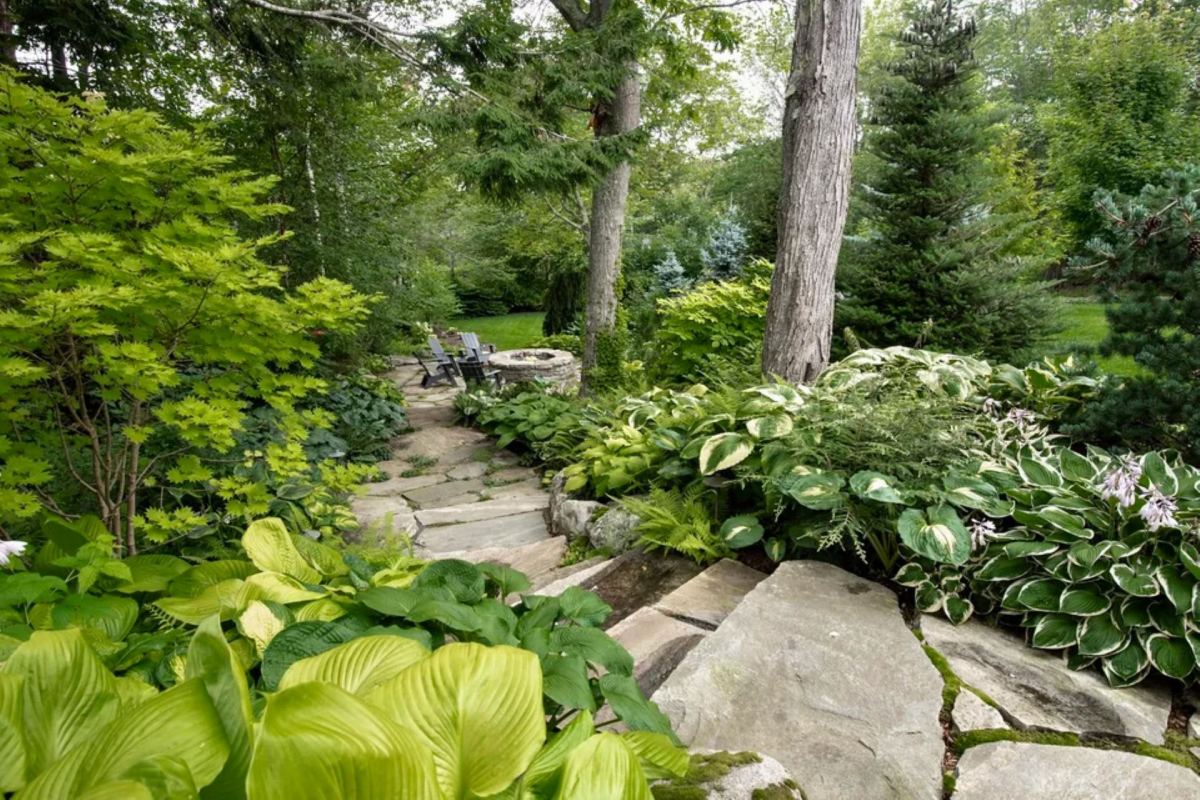Who knew that the Garden of Eden was in New England?
Perhaps not, but one Redditor showed off their personal oasis, complete with a stone path and a few seats huddled around a fireplace, in the r/landscaping subreddit.
"Shade garden waiting for the rain. Southern Maine," they wrote in the caption.
The original poster filled their lush, green forest with hosta, ferns, Japanese maple trees, and shrubs such as viburnum, serviceberry, and elderberry.
The space isn't just for humans to enjoy, as the OP responded to one commenter that "if there is no wildlife in your garden, you are doing things wrong."
A shade garden — a garden with plants that can thrive despite minimal to no sunlight — is one of several alternatives to financially and environmentally draining monoculture lawns.
A switch to a native plant lawn can save homeowners $2,750 over 10 years, cutting costs on water, fertilizer, and pest and weed control. Native plant lawns can also reduce water consumption by 1,750,000 gallons in that same span.
Furthermore, monoculture lawns require more time for upkeep and fail to provide a home to keystone species that pollinate plants in the area. Pollinators like bees, butterflies, birds, and even mosquitoes help produce healthier fruits and vegetables.
Shade gardens might not be feasible depending on where you live, but other potential options include rain gardens, clover, buffalo grass, and xeriscaped yard. All are low-maintenance, eco-friendly options that are mutually beneficial for homeowners and the local ecosystem while still being aesthetically pleasing.
Homeowners wary of fully replacing their traditional lawns needn't fret, as even a partial transition can reduce costs and help provide habitat to creatures in the area.
It might also lead to some admiration from neighbors or social media — plenty of which the rain garden from the original post received.
"Absolutely stunning - I want my garden to look like this!" one user said.
"This is gardening done right. Awesome work OP!" another wrote.
Join our free newsletter for easy tips to save more, waste less, and help yourself while helping the planet.









